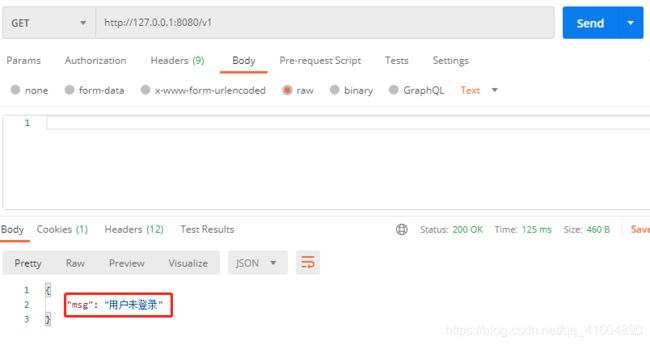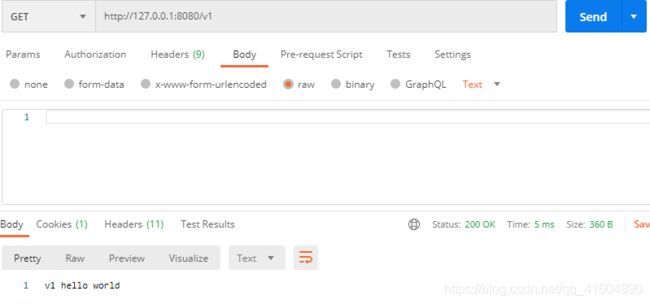springboot前后端分离整合spring security
基于session
1.导入依赖
<dependencies>
<dependency>
<groupId>com.alibabagroupId>
<artifactId>fastjsonartifactId>
<version>1.2.49version>
dependency>
<dependency>
<groupId>org.springframework.bootgroupId>
<artifactId>spring-boot-starter-securityartifactId>
dependency>
<dependency>
<groupId>org.springframework.bootgroupId>
<artifactId>spring-boot-starter-webartifactId>
dependency>
<dependency>
<groupId>org.springframework.bootgroupId>
<artifactId>spring-boot-starter-testartifactId>
<scope>testscope>
dependency>
<dependency>
<groupId>org.springframework.securitygroupId>
<artifactId>spring-security-testartifactId>
<scope>testscope>
dependency>
dependencies>
2.自定义的用户登录认证逻辑
import org.springframework.beans.factory.annotation.Autowired;
import org.springframework.security.core.GrantedAuthority;
import org.springframework.security.core.authority.SimpleGrantedAuthority;
import org.springframework.security.core.userdetails.User;
import org.springframework.security.core.userdetails.UserDetails;
import org.springframework.security.core.userdetails.UserDetailsService;
import org.springframework.security.core.userdetails.UsernameNotFoundException;
import org.springframework.security.crypto.password.PasswordEncoder;
import org.springframework.stereotype.Component;
import java.util.HashSet;
import java.util.Set;
/**
* 自定义的用户登录认证逻辑
*/
@Component
public class MyUserDetailsService implements UserDetailsService {
@Autowired
private PasswordEncoder passwordEncoder;
@Override
public UserDetails loadUserByUsername(String username) throws UsernameNotFoundException {
Set authoritiesSet = new HashSet();
// 模拟从数据库中获取用户的角色及权限
GrantedAuthority authority = new SimpleGrantedAuthority("/v3");
authoritiesSet.add(authority);
String encode = passwordEncoder.encode("123456");
// 模拟对比用户密码
// 登录成功
return new User( username, encode, authoritiesSet);
}
}
3.自定义access权限控制
import org.springframework.security.core.Authentication;
import org.springframework.security.core.GrantedAuthority;
import org.springframework.security.core.authority.SimpleGrantedAuthority;
import org.springframework.security.core.userdetails.UserDetails;
import org.springframework.stereotype.Component;
import javax.servlet.http.HttpServletRequest;
import java.util.Collection;
/**
* 自定义access权限控制
*/
@Component("rbacauthorityservice")
public class RbacAuthorityService {
public boolean hasPermission(HttpServletRequest request, Authentication authentication) {
Object userInfo = authentication.getPrincipal();
if (userInfo instanceof UserDetails) {
UserDetails userDetails = (UserDetails) userInfo;
Collection<? extends GrantedAuthority> authorities = userDetails.getAuthorities();
String requestURI = request.getRequestURI();
// 模拟放行无需权限的接口
if("/v1".equals(request.getRequestURI())){
return true;
}
// 验证用户是否有包含该权限
return authorities.contains(new SimpleGrantedAuthority(requestURI));
}
return false;
}
}
4.自定义的安全校验
import org.springframework.beans.factory.annotation.Autowired;
import org.springframework.context.annotation.Bean;
import org.springframework.context.annotation.Configuration;
import org.springframework.http.HttpMethod;
import org.springframework.security.config.annotation.web.builders.HttpSecurity;
import org.springframework.security.config.annotation.web.configuration.EnableWebSecurity;
import org.springframework.security.config.annotation.web.configuration.WebSecurityConfigurerAdapter;
import org.springframework.security.crypto.bcrypt.BCryptPasswordEncoder;
@EnableWebSecurity
@Configuration
public class MyWebSecurityConfigurer extends WebSecurityConfigurerAdapter {
@Autowired
AjaxAuthenticationEntryPoint authenticationEntryPoint;
@Autowired
AjaxAccessDeniedHandler accessDeniedHandler;
/**
* 设置默认的加密方式(强hash方式加密)
*/
@Bean
public BCryptPasswordEncoder passwordEncoder() {
return new BCryptPasswordEncoder();
}
@Override
protected void configure(HttpSecurity http) throws Exception {
// 去掉 CSRF
http.csrf().disable()
.authorizeRequests()//定义哪些URL需要被保护、哪些不需要被保护
.antMatchers(HttpMethod.OPTIONS, "/**").permitAll() // OPTIONS放行
.antMatchers(HttpMethod.POST, "/login").permitAll()
.antMatchers(HttpMethod.GET, "/logout").permitAll()
.anyRequest()
.access("@rbacauthorityservice.hasPermission(request,authentication)"); // RBAC 动态 url 认证
http.exceptionHandling().accessDeniedHandler(accessDeniedHandler); // 无权访问 JSON 格式的数据
http.exceptionHandling().authenticationEntryPoint(authenticationEntryPoint);//匿名用户访问无权限资源时的异常处理
}
}
5.测试类
import com.zm.config.MyUserDetailsService;
import org.springframework.beans.factory.annotation.Autowired;
import org.springframework.security.authentication.UsernamePasswordAuthenticationToken;
import org.springframework.security.core.context.SecurityContextHolder;
import org.springframework.security.core.userdetails.UserDetails;
import org.springframework.web.bind.annotation.GetMapping;
import org.springframework.web.bind.annotation.PostMapping;
import org.springframework.web.bind.annotation.RestController;
@RestController
public class TestController {
@Autowired
MyUserDetailsService myUserDetailsService;
@GetMapping("v1")
public String v1() {
return "v1 hello world";
}
@GetMapping("v2")
public String v2() {
return "v2 hello world";
}
@GetMapping("v3")
public String v3() {
return "v3 hello world";
}
@PostMapping("/login")
public String login() {
UserDetails userDetails = myUserDetailsService.loadUserByUsername("zhou");
SecurityContextHolder.getContext()
.setAuthentication(
new UsernamePasswordAuthenticationToken(userDetails,
userDetails.getPassword(), userDetails.getAuthorities()));
return "login ok";
}
@PostMapping("/logout")
public void logout() {
SecurityContextHolder.clearContext();
}
}
6.测试结果
基于spring session集群 分布式中的使用
链接: springboot-整合spring-session-redis在nginx下实现session共享(九).
补充链接: Springboot http session支持分布式;同时支持 cookie 和 header 传递;websocket 连接 共享 http session.
/**
* 分布式session-redis配置
*/
// session托管到redis
// maxInactiveIntervalInSeconds单位:秒;
// RedisFlushMode有两个参数:ON_SAVE(表示在response commit前刷新缓存),IMMEDIATE(表示只要有更新,就刷新缓存)
import org.springframework.context.annotation.Bean;
import org.springframework.context.annotation.Configuration;
import org.springframework.session.data.redis.config.ConfigureRedisAction;
import org.springframework.session.data.redis.config.annotation.web.http.EnableRedisHttpSession;
import org.springframework.session.web.http.HeaderHttpSessionIdResolver;
@EnableRedisHttpSession(redisNamespace = "session")
@Configuration
public class RedisHttpSessionConfig {
//这里有个小坑,如果服务器用的是云服务器,不加这个会报错
@Bean
public static ConfigureRedisAction configureRedisAction() {
return ConfigureRedisAction.NO_OP;
}
//可自定义session策略,这里配置的是Header方式(有提供Header,Cookie等方式)
@Bean
public HeaderHttpSessionIdResolver httpSessionStrategy() {
// 设置HttpServletRequest中Header里的自定义token名称
return new HeaderHttpSessionIdResolver("token");
}
}
import org.springframework.beans.factory.annotation.Autowired;
import org.springframework.context.annotation.Bean;
import org.springframework.context.annotation.Configuration;
import org.springframework.http.HttpMethod;
import org.springframework.security.config.annotation.web.builders.HttpSecurity;
import org.springframework.security.config.annotation.web.configuration.EnableWebSecurity;
import org.springframework.security.config.annotation.web.configuration.WebSecurityConfigurerAdapter;
import org.springframework.security.config.http.SessionCreationPolicy;
import org.springframework.security.crypto.bcrypt.BCryptPasswordEncoder;
@EnableWebSecurity
@Configuration
public class MyWebSecurityConfigurer extends WebSecurityConfigurerAdapter {
@Autowired
AjaxAuthenticationEntryPoint authenticationEntryPoint;
@Autowired
AjaxAccessDeniedHandler accessDeniedHandler;
/**
* 设置默认的加密方式(强hash方式加密)
*/
@Bean
public BCryptPasswordEncoder passwordEncoder() {
return new BCryptPasswordEncoder();
}
@Override
protected void configure(HttpSecurity http) throws Exception {
// 去掉 CSRF
http.csrf().disable().sessionManagement().sessionCreationPolicy(SessionCreationPolicy.NEVER)
.and().authorizeRequests()//定义哪些URL需要被保护、哪些不需要被保护
.antMatchers(HttpMethod.OPTIONS, "/**").permitAll() // OPTIONS放行
.antMatchers(HttpMethod.POST, "/login").permitAll()
.antMatchers(HttpMethod.GET, "/logout").permitAll()
.antMatchers(HttpMethod.GET, "/get/**").permitAll()// /get/xxx放行
.anyRequest()
.access("@rbacauthorityservice.hasPermission(request,authentication)"); // RBAC 动态 url 认证
http.exceptionHandling().accessDeniedHandler(accessDeniedHandler); // 无权访问 JSON 格式的数据
http.exceptionHandling().authenticationEntryPoint(authenticationEntryPoint);//匿名用户访问无权限资源时的异常处理
}
}
基于JWT
分布式项目中的使用
springboot和springsecurity整合OAuth2
Spring Cloud Security OAuth2 实现分布式系统授权
链接: 深入理解Spring Cloud Security OAuth2及JWT.
解决与springboot admin的安全认证
解决方案:配置多个WebSecurityConfigurerAdapter
按Order() 顺序加载
链接: 整合springboot admin 监控 - springboot(十五).
链接: 多个 WebSecurityConfigurerAdapter 的 order 问题.
import org.springframework.beans.factory.annotation.Autowired;
import org.springframework.context.annotation.Bean;
import org.springframework.context.annotation.Configuration;
import org.springframework.core.annotation.Order;
import org.springframework.http.HttpMethod;
import org.springframework.security.config.annotation.web.builders.HttpSecurity;
import org.springframework.security.config.annotation.web.configuration.EnableWebSecurity;
import org.springframework.security.config.annotation.web.configuration.WebSecurityConfigurerAdapter;
import org.springframework.security.config.http.SessionCreationPolicy;
import org.springframework.security.crypto.bcrypt.BCryptPasswordEncoder;
@Order(3)
@EnableWebSecurity
@Configuration
public class MyWebSecurityConfigurer extends WebSecurityConfigurerAdapter {
@Autowired
AjaxAuthenticationEntryPoint authenticationEntryPoint;
@Autowired
AjaxAccessDeniedHandler accessDeniedHandler;
/**
* 设置默认的加密方式(强hash方式加密)
*/
@Bean
public BCryptPasswordEncoder passwordEncoder() {
return new BCryptPasswordEncoder();
}
@Override
protected void configure(HttpSecurity http) throws Exception {
// 去掉 CSRF
http.csrf().disable().sessionManagement().sessionCreationPolicy(SessionCreationPolicy.NEVER)
.and().authorizeRequests()//定义哪些URL需要被保护、哪些不需要被保护
.antMatchers(HttpMethod.OPTIONS, "/**").permitAll() // OPTIONS放行
.antMatchers("/actuator/**").permitAll() // actuator监控接口放行,不指定请求方式
.antMatchers(HttpMethod.POST, "/login").permitAll()
.antMatchers(HttpMethod.GET, "/logout").permitAll()
.antMatchers(HttpMethod.GET, "/get/**").permitAll()
.anyRequest()
.access("@rbacauthorityservice.hasPermission(request,authentication)"); // RBAC 动态 url 认证
http.exceptionHandling().accessDeniedHandler(accessDeniedHandler); // 无权访问 JSON 格式的数据
http.exceptionHandling().authenticationEntryPoint(authenticationEntryPoint);//匿名用户访问无权限资源时的异常处理
}
}
import org.springframework.context.annotation.Configuration;
import org.springframework.core.annotation.Order;
import org.springframework.security.config.annotation.authentication.builders.AuthenticationManagerBuilder;
import org.springframework.security.config.annotation.web.builders.HttpSecurity;
import org.springframework.security.config.annotation.web.configuration.WebSecurityConfigurerAdapter;
import org.springframework.security.crypto.factory.PasswordEncoderFactories;
import org.springframework.security.crypto.password.PasswordEncoder;
@Order(4)
@Configuration
public class SecuritySecureConfig extends WebSecurityConfigurerAdapter {
/***
* 指定让它拦截actuator的接口即可,业务相关的接口由业务权限系统去控制
*/
@Override
protected void configure(HttpSecurity http) throws Exception {
http.httpBasic().and().authorizeRequests().antMatchers("/actuator/**").authenticated().anyRequest().permitAll();
// 关闭CSRF,否则POST请求必须带上token
http.csrf().disable();
}
/**
* 在内存中配置一个用户,admin/admin分别是用户名和密码,这个用户拥有USER角色。
* withDefaultPasswordEncoder 被遗弃,原因是不安全,只能在例子中使用
*
* @param auth
* @throws Exception
*/
@Override
protected void configure(AuthenticationManagerBuilder auth) throws Exception {
PasswordEncoder encoder = PasswordEncoderFactories.createDelegatingPasswordEncoder();
auth.inMemoryAuthentication()
.withUser("user")
.password(encoder.encode("user"))
.roles("USER");
}
}
参考链接
链接: spring-session(一)揭秘.
链接: Springboot + Spring Security 实现前后端分离登录认证及权限控制.
链接: springboot+springsecurity+mybatis+JWT+Redis 实现前后端离(实战篇).
链接: SpringBoot Security前后端分离登录验证.
链接: SpringBoot+SpringSecurity+jwt实现前后端分离的权限认证(不用security的登陆和注销).
链接: 基于 spring-session 解决分布式 session 共享问题.


